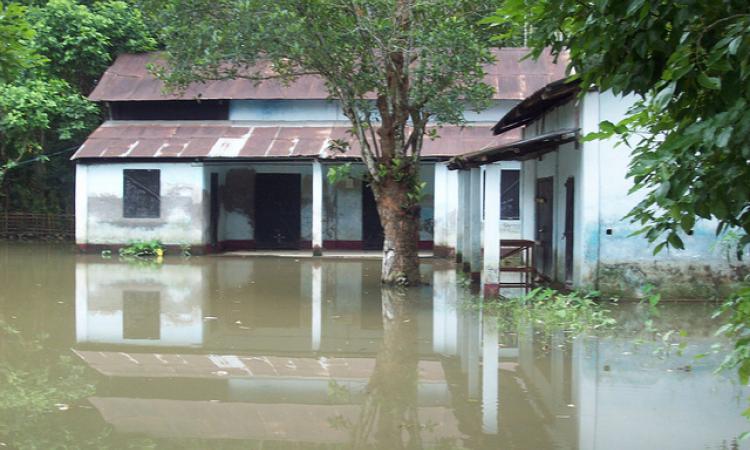
In December of 2015, when Chennai was flooded and people were marooned, a team of scientists from Anna University was collecting groundwater samples along the Adyar river to investigate if the groundwater in this region was fit for human consumption.
Researchers collected water samples from 17 locations in December 2015 and April 2016, that is, during and after floods. They tested the samples for salt and heavy metal concentration, microbial load and their susceptibility to available antibiotics.
“We wanted to know if the city water met water quality parameters laid down by the Bureau of Indian Standards during and post-flood," Lakshmanan Elango, a professor at the Department of Geology of Anna University, who led this study, tells India Science Wire.
The results showed that heavy metal and microbial load in groundwater samples was high. The samples contained microbes such as Enterobacter, Staphylococcus, Escherichia, Streptococcus, Vibrio, and Salmonella that are known to cause infections like dysentery, cholera and typhoid in humans. These microbes were cultured with various antibiotics used in clinical practice to treat life-threatening infections, to know if they were susceptible or resistant to drugs.
“The bacteria were sensitive to most antibiotics but some were resistant to nalidixic acid, which is alarming as antibiotic resistance can rapidly spread in the environment," says Prof. Elango. The results of the study have been published in the journal Nature Scientific Data.
In addition, scientists found high genetic similarity between bacteria from various locations implying that they must have originated from a single domestic sewage source containing faecal matter. “Sewage must have washed off with flood water, which, in turn, inundated the wells and that would have resulted in the contamination of the groundwater,” believes Prof Elango.
“Our findings show that floods have the potential to impact the microbial quality of groundwater in the affected areas. Based on our study, we advise that wells must be chlorinated and the public must be warned to avoid consuming groundwater for drinking, at least for some months post floods,” he adds.
The research team included Ganesan Gowrishankar, Ramachandran Chelliah, Sudha Rani Ramakrishnan, Vetrimurugan Elumalai, Saravanan Dhanamadhavan, Kartikeyan Brindha, Usha Antony, and Lakshmanan Elango. It was done in collaboration with the University of Zululand in South Africa and the National University of Singapore and was funded by the Department of Science and Technology (DST). (India Science Wire)